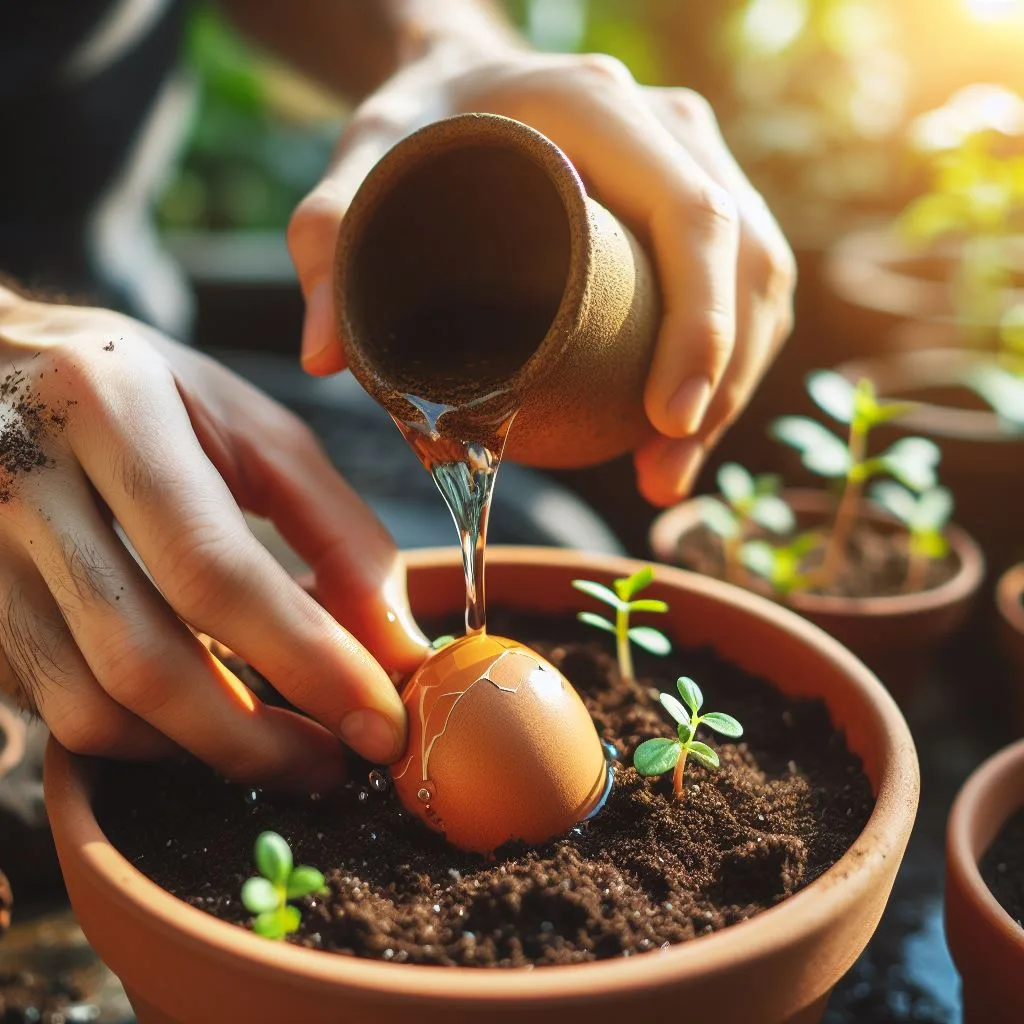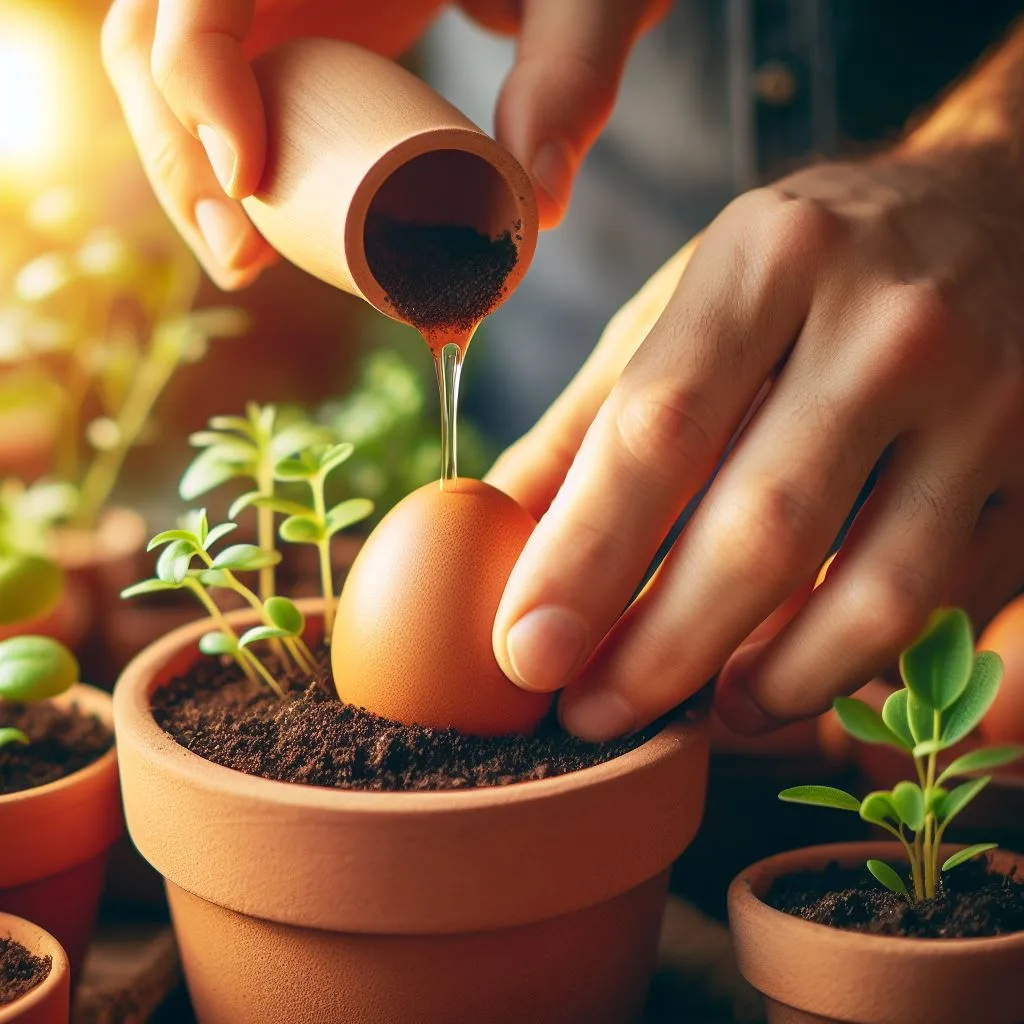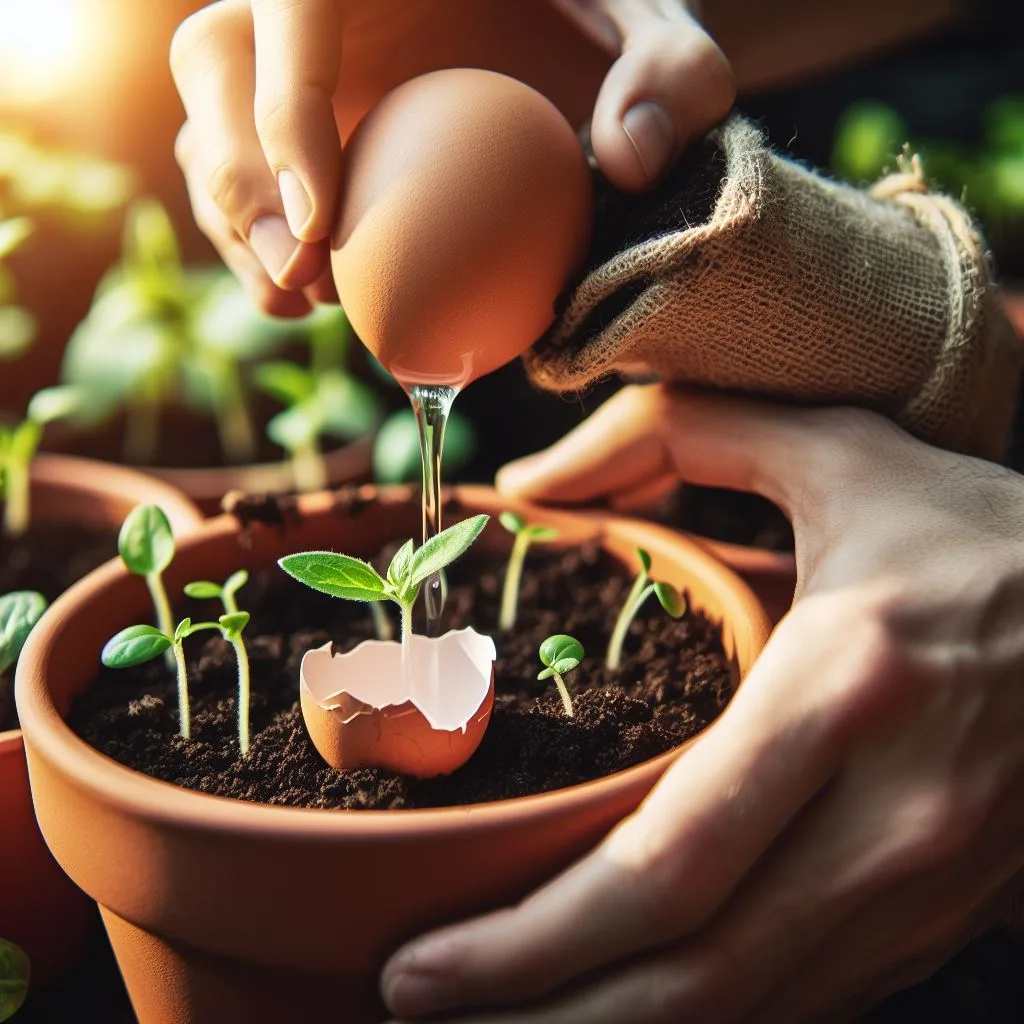What Happens When You Add Egg in Plants
In the realm of gardening, there’s a surprising secret weapon that many enthusiasts swear by: eggs. Yes, you read that right! Eggs aren’t just a staple of our breakfast plates; they can also play a significant role in nurturing our beloved plants. But what exactly happens when you add eggs to plants? Let’s crack open this topic and explore the egg-citing possibilities!
Introduction to Using Eggs in Gardening
Gardening aficionados have long recognized the value of natural remedies and organic solutions to foster plant health and growth. One such remedy involves the utilization of eggs, particularly eggshells, as a source of nutrients for plants.
Nutritional Benefits of Eggs for Plants
Eggs are packed with essential nutrients that can benefit plant growth. Eggshells, primarily composed of calcium carbonate, can provide a calcium boost to plants, aiding in cell wall formation and disease prevention. Additionally, eggs contain traces of other minerals like magnesium, potassium, and phosphorus, which are vital for plant vitality.
How to Use Eggs in Gardening

Incorporating Eggshells into Soil
One common method is to crush eggshells into small pieces and mix them into the soil. Over time, as the eggshells decompose, they release calcium and other minerals into the soil, enriching it and promoting healthier plant growth.
Making Eggshell Tea Fertilizer
Another approach is to create an eggshell tea fertilizer by steeping crushed eggshells in water. This solution can then be used to water plants, providing them with a nutrient-rich boost.
Impact of Eggs on Plant Growth
Improved Soil Quality
The calcium from eggshells helps to balance soil pH levels and improve its structure, making it more conducive to plant growth.
Enhanced Nutrient Absorption
Plants absorb calcium and other nutrients from the soil through their roots, contributing to stronger stems, vibrant foliage, and better fruit development.
Pest Deterrent Properties
Crushed eggshells can also act as a natural deterrent for pests like snails and slugs, thanks to their abrasive texture.
Scientific Evidence Supporting the Use of Eggs in Gardening
Several studies have corroborated the beneficial effects of using eggs in gardening, demonstrating improved soil fertility and plant growth outcomes.
Common Misconceptions About Using Eggs in Gardening
Despite the benefits, there are some misconceptions surrounding the use of eggs in gardening, such as concerns about eggshells attracting pests or causing soil imbalances. However, with proper preparation and application, these risks can be mitigated.
Egg-Related Gardening Tips and Tricks
- Save and crush eggshells from your kitchen to use in your garden.
- Experiment with different methods of incorporating eggs into your gardening routine to find what works best for your plants.

egg in plants
Environmental Considerations of Using Eggs in Gardening
Using eggs in gardening aligns with eco-friendly practices, as it promotes natural fertilization methods and reduces reliance on synthetic chemicals.
Real-Life Success Stories of Using Eggs in Gardening
Numerous gardeners have shared their experiences of witnessing healthier, more vibrant plants after incorporating eggs into their gardening regimen.
Egg Gardening Hacks for Beginners
For those new to egg gardening, start small and gradually increase the amount of eggshells used as you become more comfortable with the process. Additionally, keep track of your plants’ progress to gauge the effectiveness of egg-based treatments.
Potential Drawbacks of Using Eggs in Gardening
While rare, overapplication of eggshells or eggshell tea can lead to soil alkalinity issues, so it’s essential to use them in moderation.
Frequently Asked Questions About Using Eggs in Gardening
- Can I use any type of eggs for gardening?
- Yes, both chicken and eggshell eggs can be used effectively in gardening.
- How long does it take for eggshells to decompose in the soil?
- It can take several months to a year for eggshells to fully decompose, depending on factors such as soil conditions and temperature.
- It can take several months to a year for eggshells to fully decompose, depending on factors such as soil conditions and temperature.
- Will using eggs attract unwanted pests to my garden?
- While eggshells may attract pests like snails and slugs initially, their abrasive texture often deters these pests from causing significant damage to plants.
- Can I use eggshells as a fertilizer for all types of plants?
- Yes, eggshells can benefit a wide variety of plants, including vegetables, flowers, and herbs.
- Are there any alternatives to using eggshells in gardening?
- Yes, other natural sources of calcium, such as bone meal or gypsum, can also be used to supplement soil fertility.
Conclusion
In conclusion, adding eggs to plants can yield a plethora of benefits, ranging from improved soil quality to enhanced nutrient absorption and pest deterrence. By harnessing the power of eggs, gardeners can cultivate healthier, more resilient plants while embracing sustainable gardening practices.








I’ve been exploring for a little bit for any high quality articles or blog posts on this sort of area . Exploring in Yahoo I at last stumbled upon this site. Reading this info So i am happy to convey that I have an incredibly good uncanny feeling I discovered just what I needed. I most certainly will make certain to don’t forget this website and give it a look on a constant basis.
I’m extremely impressed with your writing skills and also with the layout on your weblog. Is this a paid theme or did you modify it yourself? Either way keep up the excellent quality writing, it’s rare to see a nice blog like this one today..
Thank You So Much.Yes This is a paid theme